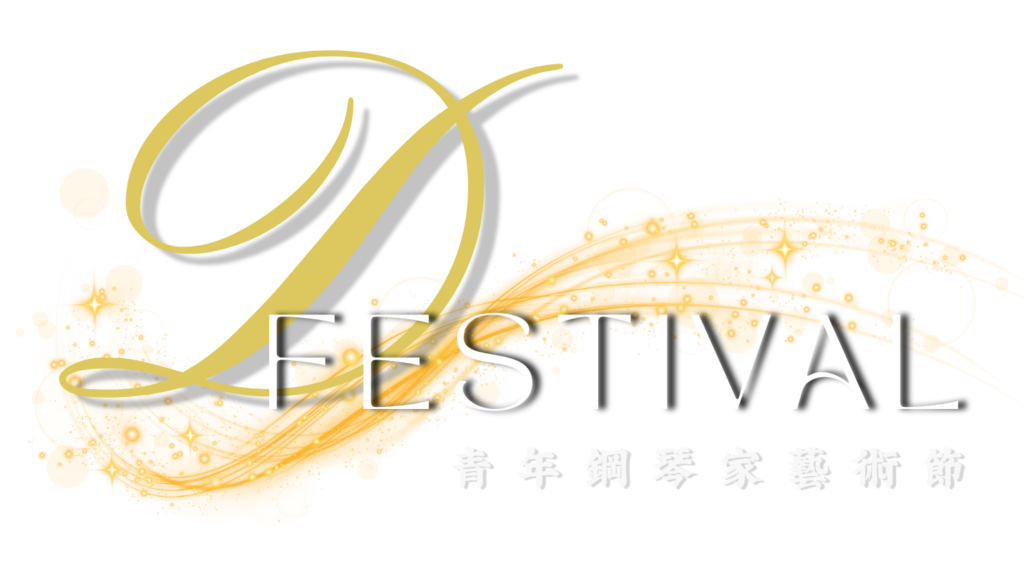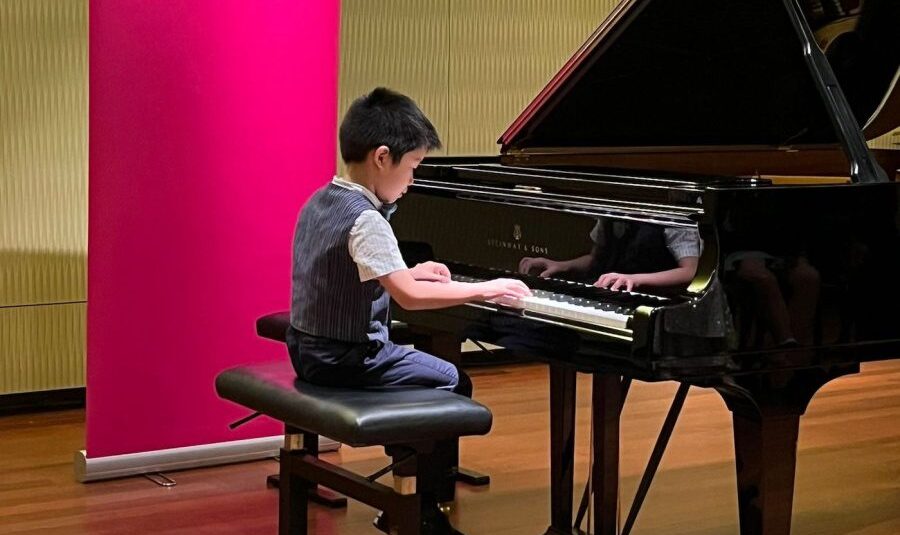Huang Ruoyu explores the profound concept of "D," a pursuit of artistic excellence that transcends technical mastery, blending tradition, transformation, and life's essence to redefine musical interpretation.
Read More
Close



A Conversation On the Art of “D
Introduction:
Every moment spent with Ruoyu feels like a profound discussion about art. He has a knack for expressing the deepest ideas in the simplest language. For instance, while having coffee, he might suddenly talk about how “D” is interpreted in various works. After meals, he often shares how a master artist subtly respects the spirit of an original work. To him, “D” is not just about technical mastery but also a pursuit of the ultimate state of art. He often says, “One cannot remain on the surface of music and ignore its true soul.” This statement left a deep impression on me. Huang refuses to be confined by the framework of so-called “perfect interpretation” and constantly explores how music can convey deeper emotions. His discussions always make me reexamine the meaning of music. For him, “D” represents not only an artistic height but also an attitude toward life: to continually push boundaries and never stop striving. With these thoughts in mind, I conducted this in-depth interview with Huang Ruoyu to explore his perspective on the world of “D.”
– Interviewed by Yuhang Huang



















Add some content for each one of your videos, like a description, transcript or external links.To add, remove or edit tab names, go to Tabs.
Q: You often mention “D,” but for many people, it remains an abstract concept. How do you define “D,” and what does it mean in your musical world?
A: When discussing “D,” we must delve into the realms of Exquisite (絕) and transcendent (化), as “D” symbolizes a very high level of artistry. We know that these realms aim for an intangible form of art. Most observable art forms today are tangible to some extent, but in the pursuit of excellence, art transitions from tangible to intangible — it becomes unbound by superficial frameworks and achieves a state where form becomes formless.
Q: You mentioned that art transitions from tangible to intangible and becomes unbound. Doesn’t this contradict your emphasis on respecting the spirit of the original work? What exactly does “respecting the spirit of the original” mean, and how is it different from simply being faithful to the score?
A: In the late 19th and early 20th centuries, there was a golden age of Romantic pianists who achieved this transformation from tangible to intangible. These pianists were closely connected to composers like Liszt and Chopin — students such as Mikuli or Clara Schumann — or those deeply associated with Brahms. They were the performers most aligned with the spirit of the original works. Their playing styles may sound vastly different from today’s aesthetic standards, yet their interpretations shared a common lineage.
They didn’t just respect the original works superficially; they brought out their true spirit. Today, however, many musicians stop at surface-level fidelity to scores, forgetting what it means to truly respect an original work’s essence. This lack of depth is one reason classical music has lost some of its appeal — performances have become rigid and formulaic, lacking artistry and vitality.
Q: So in your view, “D” involves not just technical mastery but also a spiritual inheritance, correct?
A: Absolutely. At institutions like Curtis and Juilliard, we delved deeply into this concept. By our early twenties, most of my peers had already reached what I call the Distinguished (精) stage. We would repeatedly study historical recordings — the closest interpretations to capturing the spirit of original works — and lament that modern students rarely listen to these recordings anymore. This is unfortunate because these performances embody artistic essence. Without understanding this history, many musicians lack a foundation and drift further from the true spirit of original works.
Q: You often mention “D,” but for many people, it remains an abstract concept. How do you define “D,” and what does it mean in your musical world?
A: When discussing “D,” we must delve into the realms of Exquisite (絕) and transcendent (化), as “D” symbolizes a very high level of artistry. We know that these realms aim for an intangible form of art. Most observable art forms today are tangible to some extent, but in the pursuit of excellence, art transitions from tangible to intangible — it becomes unbound by superficial frameworks and achieves a state where form becomes formless.
Q: From what you’ve said, “D” seems not just about those masters’ styles but also about an attitude and pursuit. What does “D” specifically represent to you?
A: Exactly. “D” isn’t just those old recordings; it symbolizes people striving for artistic heights today. Musicians like Andrew or Chen Junhui represent this pursuit in our generation. It reflects our commitment to preserving traditional culture and restoring classical music’s integrity.Some might interpret “D” as standing for different, distinguished, deform, or even destroy. But I see it as half of “O,” symbolizing our incomplete journey toward artistic perfection — where “O” represents wholeness or completion. This incomplete symbol reminds us that artistic pursuit is endless; we’re always striving toward higher realms. Thus, “D” embodies a path filled with effort and growth — a representation of our generation’s understanding and transmission of musical tradition, love for art, and deep resonance with life.
Q: If “D” represents inheriting the spirit of original works, how should we approach it?
A: Pursuing “D” means staying loyal to and transmitting the spirit of original works — not just playing tangible notes but conveying their intangible artistic essence. To achieve this requires breaking free from worldly misconceptions and constraints while maintaining a love for both art and life.This style demands more than technical mastery; it calls for an attitude rooted in life itself — returning to life’s essence through art. One reason classical music isn’t widely appreciated today is that few performers achieve this level anymore. For example, Rachmaninoff’s performance style remains underappreciated despite his fame as a composer. His playing holds immense importance in music history.
Q: Why do you think “D” is so important? When did you first realize its significance?
A: The significance of “D” lies in our generation’s recreation and transmission of traditional values. I developed an interest in composition even before learning piano; by age eight, I could improvise accompaniments for unfamiliar pieces — a natural artistic intuition. However, talent alone isn’t enough. As I grew older and studied at Sichuan Conservatory of Music, I realized I hadn’t fully grasped what Transcendent (化) meant. Many people remain stuck at being merely “good” — focusing on getting into prestigious schools or securing stable jobs without breaking through artistically. This utilitarian mindset limits true artistic achievement.
Q: What made you aware of these limitations?
A: Hearing Lang Lang’s performance as a child made me realize there were greater heights beyond my imagination — a spark that marked my entry into Distinguished (精). Later, studying at Curtis Music Institute provided a pure environment free from worldly distractions — no competitions or exams — allowing us to focus solely on music’s essence.
Q: How did your time at Curtis help elevate your artistry?
A: My time there fundamentally reshaped my understanding of art’s purpose. Teachers often left things unsaid intentionally so we could learn through peer collaboration — a key aspect of my artistic growth. During those years, even playing something merely “well” was considered mediocre; only artistry at its highest level mattered.This period brought pure joy because I stepped away from societal competition to focus entirely on music itself.
Q: Did Curtis mark your transition from Distinguished (精) to Exquisite (絕)?
A: Yes, you could say that. At Curtis, I encountered diverse perspectives that broadened my worldview significantly. Later at Juilliard’s Artist Diploma program — a highly selective course admitting only two or three students per year — I studied under Sergei Babayan, whose Russian piano playing techniques (Heinrich Gustavovich Neuhaus) revolutionized my playing both physically and mentally.Babayan’s teaching transformed my approach entirely — from reducing stage anxiety to expanding repertoire — and even influenced my current teaching methods by systematizing techniques into replicable principles applicable across all pieces.
Q: Modern students often focus on technical skills early on rather than philosophical aspects like you did later in graduate school. How can they surpass Distinguished (精) into Exquisite (絕) or even Transcendent (化)?
Share Now:
Huang Ruoyu explores the profound concept of "D," a pursuit of artistic excellence that transcends technical mastery, blending tradition, transformation, and life's essence to redefine musical interpretation.
Read MoreArtistic growth mirrors personal evolution. Explore the five transformative stages of creativity, from imitation to transcendence, uncovering how technical mastery intertwines with self-discovery and spiritual cultivation.
Read More